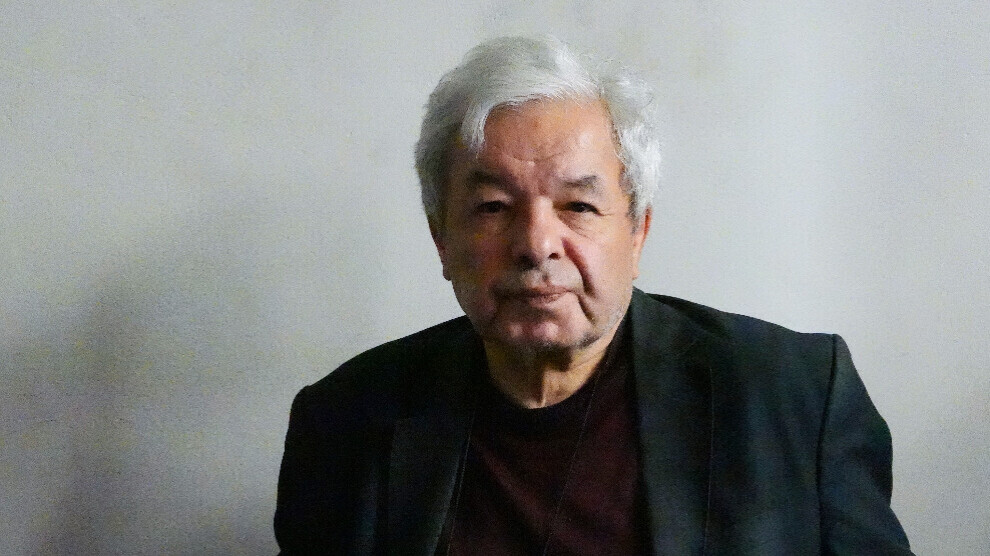Kanar: 10th Judicial reform package reinforces state repression
Lawyer Ercan Kanar criticized the 10th judicial reform package and stated that it reinforces repression rather than seeking a peaceful solution.
Lawyer Ercan Kanar criticized the 10th judicial reform package and stated that it reinforces repression rather than seeking a peaceful solution.

The law proposal titled “Amendments to the Law on the Execution of Sentences and Security Measures and Certain Other Laws,” promoted by the Justice and Development Party (AKP) as a “judicial reform” and publicly known as the “10th Judicial Reform Package,” was passed in the General Assembly of the Parliament despite widespread objections.
Lawyer Ercan Kanar spoke to ANF about the package, which originally consisted of 30 articles but had 8 removed during deliberations. He warned that with this legislation, there will soon be no one left who has not been imprisoned.
This package brings prison even for non-custodial sentences
Ercan Kanar stated that presenting the 10th Judicial Reform Package as a "reform" does not reflect reality. On the contrary, he emphasized that the package increases penalties even further. Providing an example, Kanar explained that before this law, individuals sentenced to less than five years would not serve time in prison, but now, even those sentenced to two years will be required to spend at least five days behind bars.
It also makes it harder to release ill prisoners
Kanar noted that the package provides no benefit whatsoever for political prisoners or detainees. On the contrary, he said, it further restricts the release of ill prisoners. He said that a medical report from the Forensic Medicine Institution (ATK) is required for their release, but obtaining such a report is extremely difficult.
Kanar explained that this difficulty stems from the ATK being far from independent and objective, functioning entirely under the control of the executive branch. He pointed out that for ill prisoners, especially political ones, it is virtually impossible to receive a favorable report from the ATK.
This package does not serve peace
Ercan Kanar criticized Minister of Justice Yılmaz Tunç’s claim that the “perception of impunity will be eliminated,” stating that this narrative is itself a manufactured perception. He explained that the package paves the way for the release of judicial prisoners only, excluding political detainees entirely.
Kanar described the 10th Judicial Reform Package as a tool of repression, particularly targeting the opposition. He continued: “This package, introduced at a time when there are ongoing discussions concerning the Kurdish question, has nothing to do with a solution. On the contrary, it deepens the deadlock. In other words, it is not a package that serves peace. Therefore, it is unrealistic to expect any serious step toward peace or a resolution from the current government.
For example, even if the Kurdistan Workers’ Party (PKK) were to lay down its arms today, military operations would still continue. In Van (Wan), not even the smallest press statement has been allowed for the past six years. The number of prisoners and detainees has surpassed 410,000. When the AKP first came to power, the prison population was only 49,000. Now, the 10th Judicial Reform Package passed in parliament applies only to judicial prisoners and convicts. Its aim is to reduce the prison population, and to deceive the public. It is called a ‘reform package.’ But in truth, it imposes prison sentences even for the smallest attempt to claim a democratic right. This means that soon, no one seeking justice will remain outside of prison.”
The government has failed the test of sincerity
Ercan Kanar also addressed the debate surrounding the right to hope in a context where even ill prisoners and those sentenced to aggravated life imprisonment are excluded from the new package. He noted that the Ministry of Justice has already made it clear that such a right is not on the agenda.
Kanar emphasized that the right to hope has been recognized in many countries since the second half of the 18th century and offered the following examples: “For instance, the constitutional courts of Germany and Italy have referred to the right to hope in their rulings. According to a decision by the Committee of Ministers of the Council of Europe, even the most severe sentences must be reviewed every 8 to 14 years in light of this right. The European Court of Human Rights (ECHR) states that such sentences must be reviewed every 25 years.
In countries like Norway, Spain, Portugal, Serbia, and Bosnia and Herzegovina, not only aggravated life sentences but even standard life sentences were abolished years ago. Portugal abolished aggravated life imprisonment back in the 18th century.”
Kanar stated that the current package demonstrates the government has failed the test of sincerity: “This package was prepared with a carceral mindset. While there are currently 395 prisons, around 75 new ones are under construction. Even individuals receiving minor sentences for small acts will inevitably end up in prison. This clearly shows that the government is not sincere about seeking a resolution.
In short, the AKP is not aiming to establish peace. Its goal is to sustain its rule by continuing classic policies of repression.”